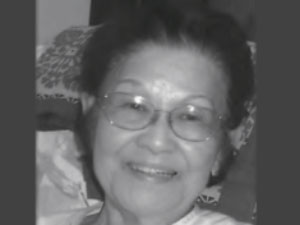
Jikoen During World War II
by Lily Horio

Very few people know that Jikoen played a key role in keeping Buddhism alive and well during World War II. Immediately after the attack on Pearl Harbor, temples and shrines throughout Hawaii were closed and nearly all Buddhist ministers were interned. At Jikoen, the late Rev. Jikai Yamasato was taken away from the temple without warning. He was under vigilant surveillance with the amount of distrust more commonly exercised over criminals. There was no time for goodbyes. Our family lived at the temple at that time, so my father was left to care for and tend to the temple matters for the duration of the war.
It was during these trying times when temples everywhere were closing their doors to allay any suspicion from the military government that Jikoen stood brave and tall, undaunted by what was almost mass hysteria to get rid of anything Japanese.
“…Buddhism is universal, that it has no boundaries, political, geographical nor cultural, saved what is Jikoen Hongwanji today.”
It was a time when it was very unpopular to be Buddhist or to be connected to anything Japanese. Yet, the members of Jikoen kept a steadfast faith in their religion and were not about to be apologetic. They believed very strongly that it was not un-American nor unpatriotic to be a Buddhist. With such an unwavering belief in one’s faith, it was no wonder that a small group of non-English speaking members were able to tackle the nearly impossible task of preventing the shutting down completely of all traces of foreign religious activities.
A petition spearheaded by Shohei Miyasato requesting that Jikoen be allowed to conduct services as usual, was circulated and meetings were held with the then Governor Ingram Stainback. The final approval was granted by the Military Governor, Lt. Gen. Delos C. Emmons, Commanding General of the Hawaiian Department. Through the legal assistance of the late Judge Masaji Marumoto who spoke in behalf of Jikoen, permission was granted. Judge Marumoto, at that time was serving as chairman of the Emergency Service Committee which was in charge of morale work among local Japanese residents since the outbreak of the war. Shohei Miyasato was also given permission to act as layminister in the absence of Rev. Yamasato. He conducted family services at the temple and upon requests, made home visitations.
Because of their deep faith in their religion, their belief that religion has nothing to do with nationality, ethnicity, nor Americanism, their belief that Buddhism is universal, that it has no boundaries, political, geographical nor cultural, saved what is Jikoen Hongwanji today.
